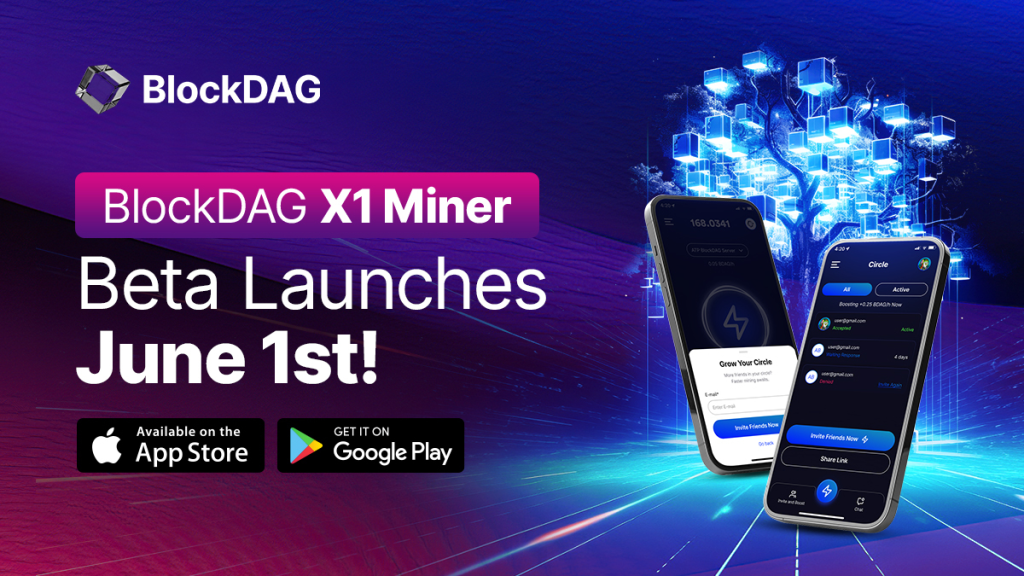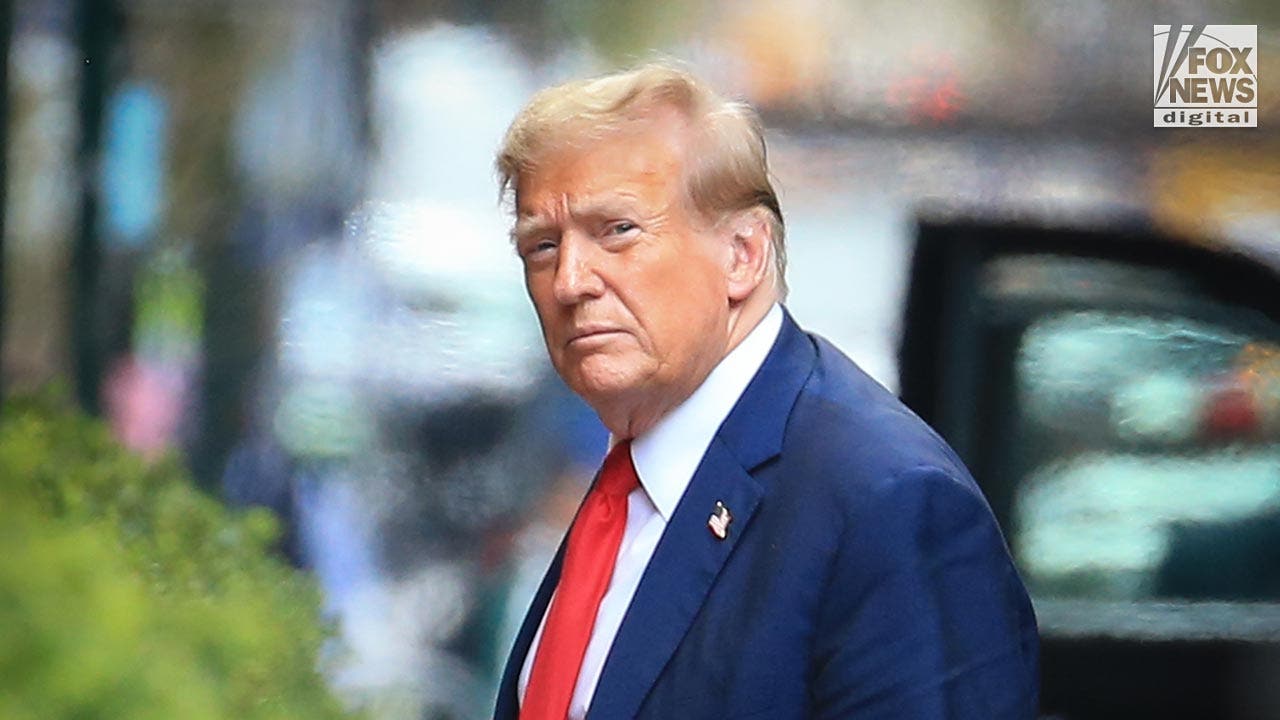Crypto
Forget crypto: Hong Kong Web3 events focus on what’s next for blockchain

Events such as September’s Edge Summit, the recently concluded ETH Hong Kong and a hackathon this past weekend hosted by Shanghai-based blockchain company Neo reflect a growing desire to focus on practical applications of Web3 technologies beyond speculative assets.
In some ways Hong Kong has long been at the forefront of this area of Web3 development, with home-grown Animoca Brands being a leading blockchain video gaming company. Yat Siu, the company’s co-founder and chairman who spoke at the Edge Summit, has been an outspoken Web3 advocate.
“[Web3 is] like the internet 25 years ago. You had all these people building websites and didn’t really know what the website was supposed to do,” Siu said in an interview with the Post on October 13.
“[Companies] know it’s important,” he added. “I think the difference 1698632352 is that the urgency, and the sense that it is important for their future, are now there.”
Telling users they have to manage and safeguard cryptographic keys is a usability hurdle, though, and it is one that many Web3 organisations are now trying to solve.
Dfinity Foundation, which appeared at the Edge Summit and develops the Internet Computer Protocol (ICP) blockchain, aims to solve this with passkeys, a type of technology that makes a user’s physical device the key for accessing an account. The passkey concept is growing in popularity among Big Tech firms seeking to end issues related password-related vulnerabilities like phishing attacks.
“Web3 is not just about crypto, but about maintaining the good of blockchain technology,” said Darren Wong, co-founder of ICP Hub Hong Kong, part of the new ICP Asia Alliance that Dfinity recently started with a US$20 million grant. “And you see a lot of Web2 companies right now are coming into the Web3 space, because they have the right users.”
Vitalik Buterin, co-founder of the Ethereum blockchain, also promoted ways of making Web3 easier to use for average people in a talk given remotely at the ETH Hong Kong event. He discussed things like social-recovery wallets, which enable people to piece together keys through a network of social connections in the event they lose access to their accounts.
“There’s a lot of work involved in understanding users and building things that work for users,” Buterin said. “There’s developers and applications, wallets for infrastructure, and all of these different actors that really need to work together to make some of these transitions work.”

But making Web3 easier to use is just one step in giving people a reason to use it.
Karl Blomsterwall, CEO of Sweden-based Nibiru Software, said his company made a strategic decision to focus on Asia for its play-to-earn title Planet IX.
“This part of the world is much more open to new ideas and open to blockchain in general,” Blomsterwall said on the sidelines of the Edge Summit. More than half of Planet IX players are in China, he added, and 80 to 90 per cent are in Asia.
Many of Animoca’s initiatives also involve enabling creators to retain value from their creations by putting them on a blockchain. Last year the company acquired TinyTap, which allows teachers to receive royalties in perpetuity for their lesson plans, and has invested in Virtual Arts, which allows street dancers to prove ownership over their moves using NFTs on its app DanceFight.
“This platform can create the income for … musicians, writers, artists of all sorts,” Siu said.

“Singapore is definitely, from a regional perspective, a competitor,” said Ryan He, the other co-founder of ICP Hub Hong Kong. “Where our advantage [lies] is [in] how quickly we can tap into that supply chain resource of developers.”
Da Hongfei, the CEO of Neo who currently lives in Singapore, said the blockchain firm is in the process of moving resources from Shanghai to Hong Kong, primarily because the blockchain uses a crypto token for payments, which is banned on the mainland.
“The environment in Hong Kong is really vibrant,” Da said in an interview with the Post during the Neo Hackathon on Saturday. “Although there are not so many developers … it’s really easy to find financial, legal [and] marketing people here.”
Additional reporting by Xinmei Shen

Crypto
Russia's Crypto Clampdown: Tight Regulations Aim to Curb Cryptocurrency Activities – TokenPost

Russia is poised to enact stringent regulations on cryptocurrency trading, aiming to curb the mass trade of digital assets like Bitcoin within its borders. This move, driven by geopolitical tensions and sanctions, signals a significant shift in the country’s approach to digital finance.
Russia’s Cryptocurrency Policy Shift: Centralized Control and Regulatory Uncertainties
In a recent report by CryptoPotato, the government’s decision to control the bitcoin industry is a significant step. Only miners and projects sanctioned by the Central Bank will be permitted to operate. Importantly, any creation of cryptocurrency exchanges and over-the-counter (OTC) services outside the experimental legislative framework will be deemed illegal.
Anton Gorelkin, Chairman of the State Duma Committee on the Financial Market, has clarified that he does not support a complete ban on bitcoin circulation in Russia.
In a Telegram post, he clarified that the restriction is not intended to prohibit all Bitcoin use but rather to govern the formation of cryptocurrency exchange platforms within Russia’s legal framework.
Gorelkin further claims that geopolitical circumstances, including considerations of international relations impact the establishment of a legitimate Russian crypto infrastructure. He said that allowing such infrastructure would expose Russian enterprises to Western sanctions.
Gorelkin further stated that the limitation may be lifted and that customers can continue to use foreign crypto exchanges and OTC services as previously. However, the impact on several OTC crypto services in Moscow remains undetermined.
Anatoly Aksakov’s Agenda: Bolstering Ruble with Stricter Cryptocurrency Regulations
Gorelkin’s latest article needs to clarify Anatoly Aksakov, Chairman of the State Duma Committee on the Financial Market, who stated that the controversial measure aims to limit non-Russian cryptocurrency operations to reinforce the ruble’s dominance.
Aksakov stated that the law would provide exemptions for crypto miners and Central Bank-backed pilot projects under a trial legal framework, citing that crypto mining contributes significantly to Russia’s tax revenue.
Meanwhile, Russia’s Finance Minister, Anton Siluanov, has urged for a more balanced approach, arguing for regulation permitting the use of cryptocurrencies in local and foreign transactions.
Photo: Microsoft Bing
TokenPost | [email protected]
<Copyright © TokenPost. All Rights Reserved. >
Crypto
May 2024’s Essential Cryptocurrency Picks: Investors Buzzing Over BlockDAG X1 Mobile Mining App Amid Forecasts for Ondo, Optimism, and Aptos – NullTX

Investors are keenly looking for the next ample opportunity as the cryptocurrency market witnesses a surge in 2024. Amongst the frontrunners, BlockDAG steals the spotlight with its innovative mining technology, outpacing other popular options like Ondo, Optimism (OP), and Aptos. BlockDAG’s user-oriented mining solutions have positioned it as a top choice in May 2024’s cryptocurrency forecasts. The anticipation builds around the upcoming June 1 launch of BlockDAG’s X1 Mobile Mining beta app.
1. BlockDAG: Pioneering Simplified Mining Solutions
BlockDAG is reshaping the crypto-mining landscape with its easy-to-use mining options and robust technological backbone. The X1 mobile mining app from BlockDAG allows individuals to mine up to 20 BDAG coins daily using just their smartphones, offering a perfect start for novices and a convenient tool for tech enthusiasts. Moreover, BlockDAG’s range of home mining devices, including the X10, X30, and X100 miners, provides various power levels and efficiency, catering to different mining scales. These devices are built with advanced ASIC technology to ensure high performance and profitability.
This approach simplifies the mining process and focuses on energy efficiency and accessibility, promoting a more inclusive cryptocurrency environment. With impressive sales of over 5200 miners and revenues nearing $2.5 million, BlockDAG is committed to making crypto mining accessible and lucrative. The forthcoming release of the BlockDAG X1 Mobile Mining app is set to enhance its market presence further.

Ondo’s value has soared by 2846.67% in the past six months, bolstered by a recent 7.44% weekly gain. With its price currently oscillating between $0.64 and $1.03, Ondo is on a trajectory towards potentially hitting $1.24 and possibly $1.63. While the outlook is promising, market shifts could temper this ascent, and investors are advised to remain vigilant. Nonetheless, Ondo is attractive for those looking to leverage its bullish trend.
3. Aptos: Experiencing Fluctuations with Growth Potential
Aptos has shown a 7% increase in the last week, despite a 40% fall over the previous month. Prices fluctuating between $8.97 and $10.65 suggest a possible climb to $11.31 or even $12.99 if the upward trend continues. However, the medium-term downturn poses risks, demanding cautious investment strategies. Aptos presents a compelling choice for those prepared to manage its price volatility.
4. Optimism (OP): Facing Challenges with Promising Growth
Optimism has demonstrated volatile yet promising market dynamics, with a 14% rise over the last week counterbalanced by a 31% decrease in the past month. Prices ranging from $2.14 to $2.64 indicate potential recovery targets at $2.83 and $3.33. Despite mixed market signals, OP’s resilience suggests it might be poised for near-term recovery and growth.

BlockDAG: Leading May 2024’s Crypto Innovations
While Ondo, Optimism, and Aptos offer notable opportunities, BlockDAG emerges as the clear leader in the May 2024 cryptocurrency market. Its groundbreaking technology of the X1 app and comprehensive product suite equip new and experienced investors with the tools to succeed in the evolving digital currency arena. BlockDAG not only leads the top four expert crypto picks but also sets a high standard for innovation and profitability in the crypto industry.
Join BlockDAG Presale Now:
Website: https://blockdag.network
Presale: https://purchase.blockdag.network
Telegram: https://t.me/blockDAGnetworkOfficial
Discord: https://discord.gg/Q7BxghMVyu
Disclosure: This is a sponsored press release. Please do your research before buying any cryptocurrency or investing in any projects. Read the full disclosure here.
Crypto
Bitcoin trader loses almost $70 million after sending crypto to wrong online account address
A cryptocurrency trader reportedly lost tens of millions of dollars in a so-called “address poisoning” scam.
Address poisoning scams are carried out by thieves who make spoof accounts of their victim’s online crypto “address,” which they use to send a small amount of currency to the victim in hopes that they will accidentally send money to the fake address later, according to Transak, a crypto trading platform.
Because blockchains are public, it’s easy for scammers to find people’s crypto addresses and send out spoof transactions to phish for victims.
CertiK, a blockchain security firm, confirmed it detected a transfer of $69.3 million worth of Bitcoin to an address “linked with address poisoning” in a post on X.
The victim’s crypto wallet now shows a total loss of around 97% of its assets on Coinbase. The account is now worth just more than $1.6 million.
Peckshield, another security firm, wrote on X that the scammers traded the stolen Bitcoin for 23,000 Ethereum and then transferred the funds. Ethereum is trading at $3,116 a coin, according to The Daily Hodl.
Trezor, another crypto trading platform, recommends double-checking every address before sending a transaction and never copying an address from transaction history when transferring funds to avoid address scams.
Sending a small test transaction before making a large transfer is also an effective method of verifying the address, the company says.
Cryptocurrency-related scams are on the rise, according to the FBI’s 2023 internet crime report. Crypto-related frauds cost investors $3.94 billion last year, the report says, making up more than three-quarters of the year’s investment scam losses.
One study showed that crypto “pig butchering” scams cost investors $75 million from 2020 to 2024. The fraud starts with criminals sending a wrong-number text that they use as a way to build trust with victims.
Then, they send small payments to them and lure them into making fake crypto investments, only cutting off contact once the victim has sent a large amount of money to the thief.
The scam’s name refers to fattening a pig up before the slaughter.
Most cryptocurrency scams involve scammers trying to get victims in unrelated scams to pay them in Bitcoin so that their crimes cannot be traced, according to the Federal Trade Commission.
The best way to spot a crypto scam is to never trust someone who will only accept payment in crypto or who is promising big profit returns on a fishy investment, the agency says.
“Investment scams are one of the top ways scammers trick you into buying cryptocurrency and sending it on to scammers,” the FTC says. “But scammers are also impersonating businesses, government agencies, and a love interest, among other tactics.”
-

 Politics1 week ago
Politics1 week agoColumbia University’s policy-making senate votes for resolution calling to investigate school’s leadership
-

 News1 week ago
News1 week agoBoth sides prepare as Florida's six-week abortion ban is set to take effect Wednesday
-

 Politics1 week ago
Politics1 week agoRepublican makes major announcement in push to grow GOP support from once-solid Dem voting bloc
-

 News1 week ago
News1 week agoPro-Palestinian campus protesters face looming deadlines and risk of arrest
-

 Politics1 week ago
Politics1 week agoGOP Rep. Bill Posey won't seek re-election, endorses former Florida Senate President as replacement
-

 World1 week ago
World1 week agoBrussels, my love? MEPs check out of Strasbourg after 5 eventful years
-

 Politics1 week ago
Politics1 week agoHouse Republicans brace for spring legislative sprint with one less GOP vote
-

 World1 week ago
World1 week agoAt least four dead in US after dozens of tornadoes rip through Oklahoma














